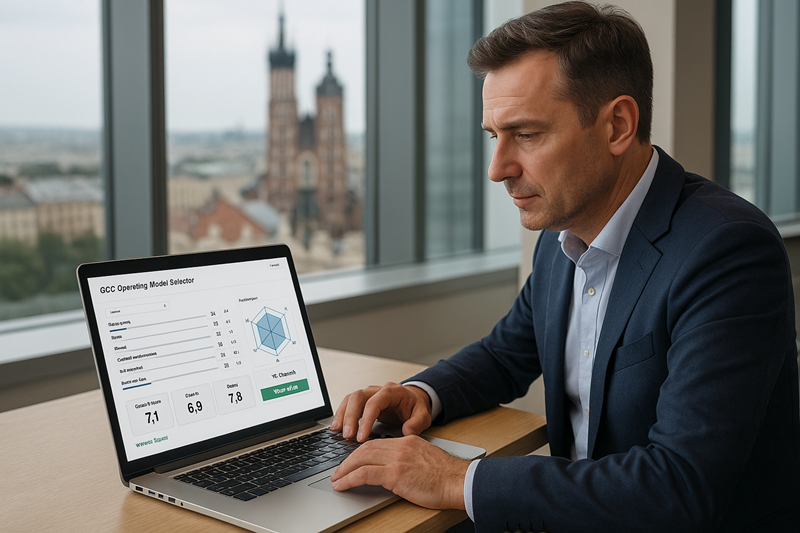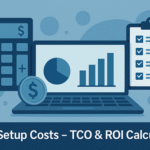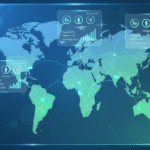Now Reading: Simplify Green: Introducing the GCC Sustainability Tracker
- 01
Simplify Green: Introducing the GCC Sustainability Tracker
Simplify Green: Introducing the GCC Sustainability Tracker
ScaleGCC Editorial TeamTools7 months ago678 Views
GCC Sustainability Tracker
Add New Goals
Recent Entries
No recent entries.
Sustainability Dashboard
Total Energy Consumed
0
Total Water Used
0
Total General Waste
0
Total Recycled Waste
0
Total Business Travel
0
Total Commute Emissions
0
GCC Sustainability Tracker - An enabler towards your sustainability goals.
Think of this tool as your personal helper for keeping an eye on how green your Global Capability Center (GCC) office is. It’s all about making it super easy for you to track your environmental impact and hit those sustainability goals.
With this tracker, you can:
Pop in your data: Simply add your daily or regular updates for things like energy or water usage.
See your latest moves: Get a quick peek at the most recent stuff you’ve added.
Check the big picture: See all your totals for important environmental stats, so you know exactly where your office stands.
Print it out: Need a report for a meeting or just for yourself? You can easily print out everything you’ve tracked.
Hit reset: If you ever want to clear everything and start fresh, there’s a button for that (just be careful, you can’t undo it!).
Understanding Your Sustainability Categories
To effectively track your office’s environmental impact, it’s important to understand what each category represents and what kind of data to input. The units shown are the primary units used for summing totals on the dashboard.
Energy Consumption (kWh)
Purpose: Tracks the amount of electricity and other energy sources consumed by your office.
What to Input: Kilowatt-hours (kWh) from electricity bills, or equivalents from natural gas/other fuel consumption (e.g., convert gas usage to kWh). Focus on total consumption from utilities.
Unit: kWh (kilowatt-hour)
Example: If your electricity bill for a month shows 15,000 kWh, you would enter ‘15000’ for Energy Consumption.
Water Usage (Liters)
Purpose: Monitors the amount of water consumed within your office facilities.
What to Input: Liters (or cubic meters, m³, which can be converted to liters: 1 m³ = 1000 Liters) from your water bills. This includes water used for restrooms, kitchens, and any on-site landscaping.
Unit: Liters
Example: If your water bill indicates 20 m³ of usage, you would convert that to 20,000 Liters.
General Waste (kg)
Purpose: Tracks the total amount of non-recycled waste generated by the office that goes to landfill or incineration.
What to Input: Kilograms (kg) or tonnes of waste. This often comes from reports provided by your waste management service.
Unit: kg (kilogram)
Example: If your waste hauler reports 500 kg of general waste for the week, you would enter ‘500’.
Recycled Waste (kg)
Purpose: Tracks the amount of waste that is diverted from landfill through recycling programs.
What to Input: Kilograms (kg) or tonnes of recycled materials (paper, plastic, glass, metal, e-waste, etc.). Also typically from waste management reports.
Unit: kg (kilogram)
Example: If your recycling efforts resulted in 300 kg of materials, you would enter ‘300’.
Business Travel Emissions (km)
Purpose: Estimates the environmental impact of employee business travel. While the unit is ‘km’, the underlying goal is to track the distance traveled that contributes to emissions.
What to Input: Total kilometers traveled for business purposes (flights, train travel, company car mileage). This often requires collecting data from travel booking systems or expense reports.
Unit: km (kilometer)
Example: If total business flights for a month covered 10,000 km, you would enter ‘10000’.
Commute Emissions (km)
Purpose: Estimates the environmental impact from employees commuting to and from the office. Similar to business travel, ‘km’ represents distance contributing to emissions.
What to Input: Total estimated kilometers traveled by employees for their daily commute. This is often gathered through employee surveys (e.g., average commute distance per employee multiplied by number of commuting employees and workdays).
Unit: km (kilometer)
Example: If a survey indicates employees collectively commute 5,000 km per day, and there are 20 workdays in a month, you would enter ‘100000’.
Disclaimer
These tools are meant to provide quick, general insights, not exhaustive advice. They should not replace professional consultation or in-depth analysis. Users are encouraged to verify information and seek expert guidance before making decisions.
Contact ExpertRelated Posts
Tools5 months ago
GCC Operating Model Selector
Tools5 months ago
GCCs Salary & Growth Benchmark
Stay Informed With the Latest & Most Important News
Previous Post
Next Post
Interesting Read
Tools8 months ago
GCC Setup Costs - TCO & ROI Calculator
Tools5 months ago
GCC Operating Model Selector
Tools4 months ago
GCC ESG Alignment Scorecard















